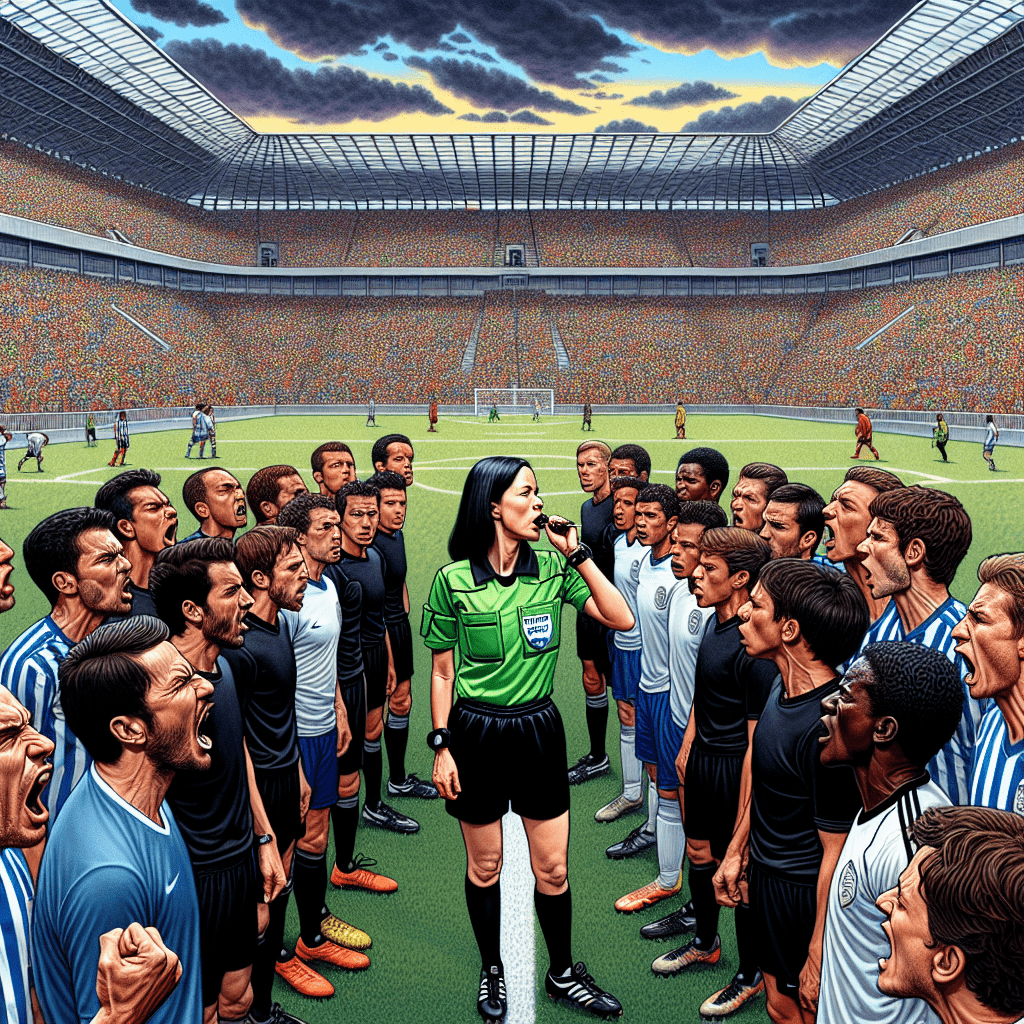[ad_1]
Soccer, known as football outside North America, is a sport celebrated worldwide for its thrilling matches, incredible talent, and moments of sheer unpredictability. Among these unpredictable moments are the decisions made by referees that have sparked debates, outrage, and sometimes even changes to the rules of the game. This article delves into some of the most disputed referee decisions in the history of soccer, examining their immediate impact on the game and the lessons learned in their wake.
Hand of God – 1986
Perhaps no other moment in soccer history is as infamous as Diego Maradona’s “Hand of God” goal during the 1986 World Cup quarter-final match between Argentina and England. Maradona’s unpenalized handball to score has become one of the most iconic and disputed moments, stirring debate about fair play and the adequacy of referee oversight in crucial matches.
The Disallowed Goal – 2010
The 2010 World Cup brought its contentious moment during a match between England and Germany when a clear goal by England’s Frank Lampard, which would have equalized the game, was not acknowledged by the referee. This incident renewed calls for technological interventions in soccer refereeing.
Nani’s Red Card – 2013
In a 2013 Champions League match between Manchester United and Real Madrid, Nani received a red card for a high boot against Alvaro Arbeloa. This decision remains hotly debated, with many arguing that the punishment was too harsh and significantly altered the outcome of the match.
Kuipers’ Penalty Decision – 2019
The UEFA Champions League semi-final match in 2019 between Tottenham Hotspur and Ajax witnessed a controversial late penalty decision by referee Björn Kuipers. This decision allowed Tottenham to progress to the final, leaving fans and players debating the interpretation of handball rules.
Key Takeaways
- Importance of Technology: The need for technological interventions, such as VAR (Video Assistant Referee), has become increasingly evident to aid referees in making more accurate decisions.
- Rule Clarity: Disputed decisions often arise from ambiguous rules, highlighting the need for clear, unambiguous regulations within the sport.
- Referee Training: Continuous training and support for referees are crucial for adapting to new technologies and interpretations of the game’s rules.
- Impact on the Game: Single decisions can significantly influence the outcome of matches, underscoring the heavy responsibility referees hold in the fairness of the game.
Frequently Asked Questions
Why do soccer decisions get so disputed?
Soccer decisions are often disputed due to the high stakes of matches, the speed at which the game is played, and sometimes the subjective nature of the rules.
Can VAR solve all disputes over decisions?
While VAR can help resolve many disputes by providing video evidence for referees to review, it is not infallible. Disagreements over the interpretation of rules can still lead to disputed decisions.
How are referees trained to make better decisions?
Referees undergo intensive training that includes studying the rules of the game, physical conditioning, and simulations of match situations. Ongoing education and the use of technology also play a significant role in their training.
What happens when a major referee decision is proven wrong?
Regrettably, once a match concludes, its outcome usually stands, regardless of later evidence showing a mistaken referee decision. However, such incidents can lead to rule changes or increased calls for technological support in decision-making.
[ad_2]






